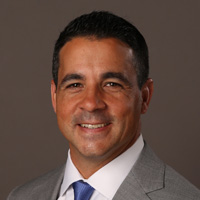Smart Moves for Investors in the 'Hazard Zone'
For those right around retirement age, protecting future income in this aging bull market requires careful preparation and creative diversification.


Profit and prosper with the best of Kiplinger's advice on investing, taxes, retirement, personal finance and much more. Delivered daily. Enter your email in the box and click Sign Me Up.
You are now subscribed
Your newsletter sign-up was successful
Want to add more newsletters?

Delivered daily
Kiplinger Today
Profit and prosper with the best of Kiplinger's advice on investing, taxes, retirement, personal finance and much more delivered daily. Smart money moves start here.

Sent five days a week
Kiplinger A Step Ahead
Get practical help to make better financial decisions in your everyday life, from spending to savings on top deals.

Delivered daily
Kiplinger Closing Bell
Get today's biggest financial and investing headlines delivered to your inbox every day the U.S. stock market is open.

Sent twice a week
Kiplinger Adviser Intel
Financial pros across the country share best practices and fresh tactics to preserve and grow your wealth.

Delivered weekly
Kiplinger Tax Tips
Trim your federal and state tax bills with practical tax-planning and tax-cutting strategies.

Sent twice a week
Kiplinger Retirement Tips
Your twice-a-week guide to planning and enjoying a financially secure and richly rewarding retirement

Sent bimonthly.
Kiplinger Adviser Angle
Insights for advisers, wealth managers and other financial professionals.

Sent twice a week
Kiplinger Investing Weekly
Your twice-a-week roundup of promising stocks, funds, companies and industries you should consider, ones you should avoid, and why.

Sent weekly for six weeks
Kiplinger Invest for Retirement
Your step-by-step six-part series on how to invest for retirement, from devising a successful strategy to exactly which investments to choose.
The current bull market is the longest in history, and it’s been a good ride.
It’s given investors who lost money in past downturns an opportunity to replenish their savings in time for retirement. And it’s provided the growing number of workers who don’t have the security of an employer pension a chance to build a nest egg from which to pull income when they no longer have a regular paycheck.
But no rally lasts forever, and this one — despite some cloudy days here and there — has lasted more than a decade. That doesn’t mean anything in and of itself (although the market is traditionally cyclical). However, there are other signs of a coming storm. Stock valuations are at the high end of their historical averages. There’s a general nervousness around what will happen next with interest rates and how that will affect the economy. And there are days when it feels as though we may be one presidential tweet away from a serious fall.
From just $107.88 $24.99 for Kiplinger Personal Finance
Become a smarter, better informed investor. Subscribe from just $107.88 $24.99, plus get up to 4 Special Issues

Sign up for Kiplinger’s Free Newsletters
Profit and prosper with the best of expert advice on investing, taxes, retirement, personal finance and more - straight to your e-mail.
Profit and prosper with the best of expert advice - straight to your e-mail.
Which means those who are in what we call the “hazard zone” — about five years away from retirement, or less than five years in — should be especially vigilant about the negative impact a correction (or worse) could have on their portfolio and overall retirement plan. You definitely don’t want to be double-dipping during this period — taking money out of your portfolio to live on at the same time you’re losing money in the market.
That doesn’t mean you should try to time the market by selling off all your stocks and putting everything into cash before there’s a drop. But the age of this bull run and heightened volatility in the market are good reminders that it’s time to protect your nest egg from risk with the right level of diversification. And for many in the hazard zone, that means considering a wider range of asset classes, including alternative and non-market strategies.
Moving away from a straight stock-and-bond strategy and mixing in some investments with a low correlation to the stock market can help reduce the negative effects of a correction. If the bull market continues, you can still make money. More significantly, though, if it doesn’t, you can preserve what you have.
A plan to diversify risk could involve using:
Market-based strategies
You still can include more conventional investments in your diversified portfolio, but you’ll likely want to look at dialing back on equities and maybe increasing your exposure to more traditional fixed-income investments, such as government or investment-grade corporate bonds.
It is worth noting, though, that in this period of low interest rates, the fixed-income market may not offer much opportunity for significant returns from interest rates. Further, once rates eventually start going up, you will be holding bonds with less than desirable rates, forcing you to possibly sell at a capital loss. This presents significant headwinds for bond investors.
Alternative strategies
These investments typically have different returns and risk profiles than stocks and bonds, and a lower correlation to the market. Options could include real estate, commodities, private capital and other investments that could provide an income cushion should stock prices fall.
Non-market strategies
Certain types of annuities, such as fixed index annuities, fall into this category and may provide retirees the greatest potential for minimizing the volatility in their investment portfolios. With this strategy, you are able to participate in the upside growth of the market, while, at the same time, protect your principal if the market should go down. It is worth noting that all annuities are not created equal, so you want to be sure you know how this strategy will best work inside of your financial plan before you sign on the dotted line.
Finding the right combination of assets for your retirement portfolio will depend on your specific situation, but diversifying your mix can help you prepare for what’s to come — whether it’s sunshine or a storm. This is why it’s important to have an independent adviser, a fiduciary who has access to all the products a client might need.
The biggest mistake I see when people come to our office for the first time is they think they’re adequately diversified, but they aren’t. Maybe that’s because they’ve been managing their investments themselves, or their adviser has them in a bunch of mutual funds, which makes them feel as if they have some variety. But in reality, those mutual funds aren’t giving them the diversification they need. Their funds often overlap and hold the same or very similar securities, so these investors have far more risk than they want without realizing it.
The good news is this “storm warning” is more like what you’d get for a hurricane than for a tornado. There’s time to react — it just isn’t clear how much time. But with the right portfolio in place, you’ll have a better chance to weather the worst no matter when the bull market ends.
Kim Franke-Folstad contributed to this article.
The appearances in Kiplinger were obtained through a PR program. The columnist received assistance from a public relations firm in preparing this piece for submission to Kiplinger.com. Kiplinger was not compensated in any way.
Profit and prosper with the best of Kiplinger's advice on investing, taxes, retirement, personal finance and much more. Delivered daily. Enter your email in the box and click Sign Me Up.

David Faulkner is a CERTIFIED FINANCIAL PLANNER™ professional with Texas-based Spectrum Advisors (www.spectrumadvisors.net). His focus is on holistic retirement planning and financial awareness, and he is fully licensed in investments and insurance.
-
 Over 65? Here's What the New $6K 'Senior Deduction' Means for Medicare IRMAA Costs
Over 65? Here's What the New $6K 'Senior Deduction' Means for Medicare IRMAA CostsTax Breaks A new deduction for people over age 65 has some thinking about Medicare premiums and MAGI strategy.
-
 U.S. Congress to End Emergency Tax Bill Over $6,000 Senior Deduction and Tip, Overtime Tax Breaks in D.C.
U.S. Congress to End Emergency Tax Bill Over $6,000 Senior Deduction and Tip, Overtime Tax Breaks in D.C.Tax Law Here's how taxpayers can amend their already-filed income tax returns amid a potentially looming legal battle on Capitol Hill.
-
 5 Investing Rules You Can Steal From Millennials
5 Investing Rules You Can Steal From MillennialsMillennials are reshaping the investing landscape. See how the tech-savvy generation is approaching capital markets – and the strategies you can take from them.
-
 When Estate Plans Don't Include Tax Plans, All Bets Are Off: 2 Financial Advisers Explain Why
When Estate Plans Don't Include Tax Plans, All Bets Are Off: 2 Financial Advisers Explain WhyEstate plans aren't as effective as they can be if tax plans are considered separately. Here's what you stand to gain when the two strategies are aligned.
-
 Counting on Real Estate to Fund Your Retirement? Avoid These 3 Costly Mistakes
Counting on Real Estate to Fund Your Retirement? Avoid These 3 Costly MistakesThe keys to successful real estate planning for retirees: Stop thinking of property income as a reliable paycheck, start planning for tax consequences and structure your assets early to maintain flexibility.
-
 I'm a Financial Planner: These Small Money Habits Stick (and Now Is the Perfect Time to Adopt Them)
I'm a Financial Planner: These Small Money Habits Stick (and Now Is the Perfect Time to Adopt Them)February gets a bad rap for being the month when resolutions fade — in fact, it's the perfect time to reset and focus on small changes that actually pay off.
-
 Social Security Break-Even Math Is Helpful, But Don't Let It Dictate When You'll File
Social Security Break-Even Math Is Helpful, But Don't Let It Dictate When You'll FileYour Social Security break-even age tells you how long you'd need to live for delaying to pay off, but shouldn't be the sole basis for deciding when to claim.
-
 I'm an Opportunity Zone Pro: This Is How to Deliver Roth-Like Tax-Free Growth (Without Contribution Limits)
I'm an Opportunity Zone Pro: This Is How to Deliver Roth-Like Tax-Free Growth (Without Contribution Limits)Investors who combine Roth IRAs, the gold standard of tax-free savings, with qualified opportunity funds could enjoy decades of tax-free growth.
-
 One of the Most Powerful Wealth-Building Moves a Woman Can Make: A Midcareer Pivot
One of the Most Powerful Wealth-Building Moves a Woman Can Make: A Midcareer PivotIf it feels like you can't sustain what you're doing for the next 20 years, it's time for an honest look at what's draining you and what energizes you.
-
 I'm a Wealth Adviser Obsessed With Mahjong: Here Are 8 Ways It Can Teach Us How to Manage Our Money
I'm a Wealth Adviser Obsessed With Mahjong: Here Are 8 Ways It Can Teach Us How to Manage Our MoneyThis increasingly popular Chinese game can teach us not only how to help manage our money but also how important it is to connect with other people.
-
 Looking for a Financial Book That Won't Put Your Young Adult to Sleep? This One Makes 'Cents'
Looking for a Financial Book That Won't Put Your Young Adult to Sleep? This One Makes 'Cents'"Wealth Your Way" by Cosmo DeStefano offers a highly accessible guide for young adults and their parents on building wealth through simple, consistent habits.